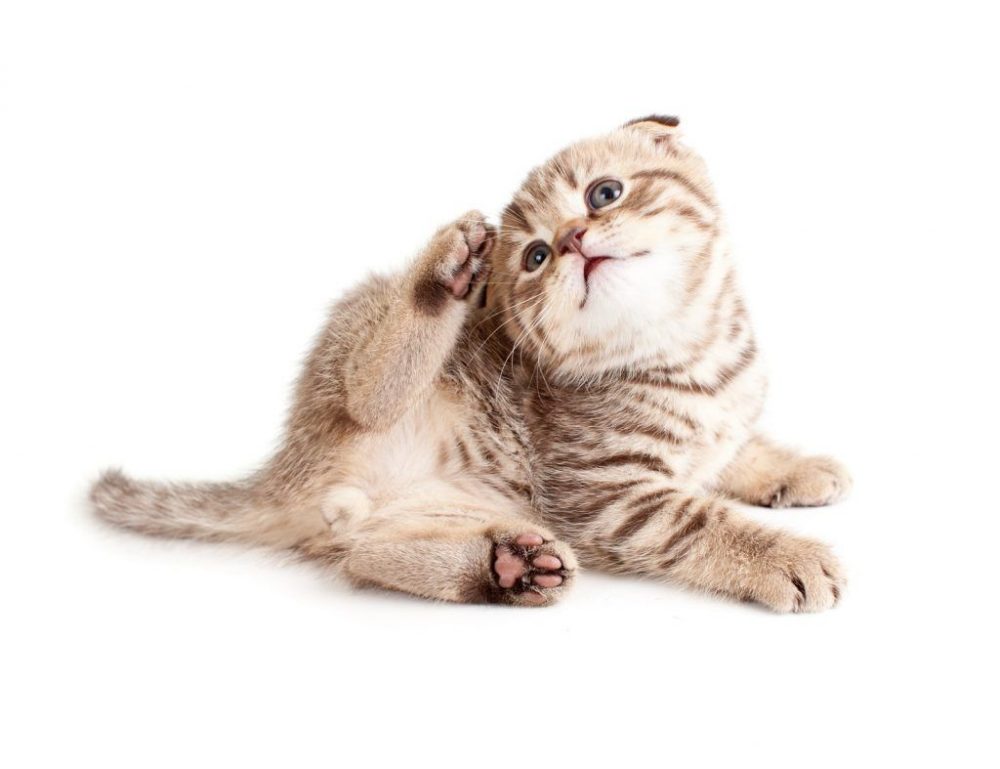

- Flea Allergy Dermatitis –Flea allergy dermatitis, or FAD, is the most commonly diagnosed skin allergy in pets. Flea bites are an annoyance for any cat. But allergic cats, as Dr. William Miller of Cornell University explains, “will react with disproportionate severity. Where it would take dozens of flea bites to significantly harm a normal cat’s skin, the same amount of damage to the skin of an allergic will result from just a few bites.”Flea allergy dermatitis causes severe itching, and your cat may develop skin lesions, scabs, or hair loss due to the constant scratching. In fact, the damage caused by the scratching is often more dangerous to the cat than the flea bite itself.Flea allergies can develop at any age, so even if your cat has never had a problem before, it is essential to keep up a flea and tick prevention regimen. You may never see a flea, but a single bite can trigger an episode that could make your cat very uncomfortable.
- Cryptococcosis –Fungal diseases come in many shapes and sizes, but the most common systemic feline fungal infection is cryptococcosis. Cryptococcosis is usually contracted from the inhalation of spores found in bird droppings. It can take weeks or even months for symptoms to present themselves.Cryptococcosiscan take the form of a respiratory disease, so many of the symptoms are related to breathing. Sneezing, snoring, snorting, and nasal discharge are frequently present. Some cats develop red or flesh-colored growths from one or both nostrils, or swelling in the nose, face, and neck. If you see any of these symptoms present in your cat, take him to your veterinarian. He or she will be able to diagnose your cat and, if necessary, provide antifungal medications.
- Obsessive Licking –What started as a simple grooming process can, for some cats, turn into an obsession. Liz Hechten, a licensed veterinary technician in Seattle, says that this is the most common skin issue she sees in cats. Female cats, as well as Siamese and Oriental breeds, are more prone to obsessive licking.Why is your cat doing it? Once you’ve eliminated the usual suspects (fleas, allergies, pain, and dry skin), it is most often because your cat is bored or anxious. When asked about possible remedies, Hechten suggested that you try to engage the cat in some enrichment activities. Make sure they are in an interesting environment. Play with them often, and use different toys. After all, if your cat is worn out from a day full of exploration and play, she won’t be as tempted to compulsively lick to relieve the boredom. And it’s a great way to bond!




